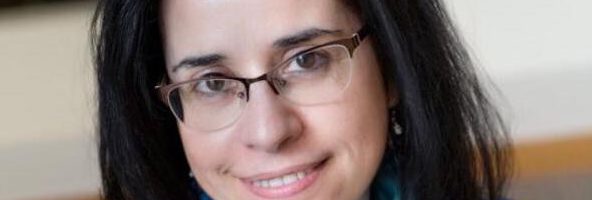It was with great excitement that I applied for the Open Pedagogy fellowship this past spring 2021. I have a high appreciation for any project that is innovative, agile, and targeted to create a learning community. Many thanks to my colleagues Dr. Mary Isbell and Dr. Jenna Sheffield for creating this Program at the University of New Haven.
It has been such an honor to be a member of the Open Pedagogy Community, and engage this past summer (2021) in learning about Open Education Resources (OER) and how to use them to empower our students. To me, open pedagogy (OP) is a teaching philosophy that puts students at the center of learning and considers them as co-creators of knowledge. It fosters their engagement and recognizes their voices as a way to reinforce inclusivity, innovation, and social justice. The use of free OER is critical in open pedagogy to facilitate and amplify access, especially for underprivileged students. There are already studies providing evidence of the impact of OER on textbooks’ cost-saving and other course outcomes (Hilton et al, 2014; Jhangiani and Jhangiani, 2017)
As soon as I have embarked on this journey, I reminded myself of the need to embrace courage (Palmer, 1998) and enjoy the participatory process (Freire, 1970). Meeting with my colleagues every two weeks to discuss our progress and learn from each other was so liberating and rewarding. Thank you Mary for organizing and leading our small group workshops!
I will describe below the early outcomes of my participation in this OP program.
I designed an experiential and interdisciplinary term project where graduate business and healthcare students can collaborate with faculty members to develop a teaching case on inclusion in a healthcare organization during these trying times of COVID 19. This project aims to foster synergy between open pedagogy and open scholarship while promoting multidisciplinary collaboration between students and faculty. My colleague Dr. Yanice Mendez-Fernandez, Interim Associate Dean and Assistant Professor in the School of Health Sciences has been very excited about this collaboration and invited Ms. Samantha Morales, Interim Director of the Master’s in Health Administration, to join this effort. The designed project will foster partnership between faculty, students, and practitioners and can be easily emulated by other faculty members.
Having spent the whole summer learning about OP and OER, I felt ready to get rid of the textbook in MGMT3350 Management of Workforce Diversity that I am teaching this fall. Besides including a statement in my syllabus about OP and OER, I used the first session of class to explain what OER are and the rationale behind using them. In addition, I asked the teams I composed to think about how they imagine an open & inclusive classroom. I have already used links to openly licensed materials in the first module and will be adding more as the course progresses. In almost every module, students are invited to find an open education resource that is aligned with a learning outcome of their choice. Another key assignment is to develop a story/critical incident pertaining to discrimination, inequity, exclusion, oppression, etc. following a template that I will be providing. Students will share their work and will be invited to facilitate a class discussion on their chosen theme.
To enable students’ engagement in OP, I have already posted on Canvas links to general OER they can start using. Ms. Diane Spinato, the Liaison Librarian to the Pompea College of Business, will be visiting my classes and sharing the library guides she prepares and updates every semester for all my classes. This time she will be adding OER that are aligned with the content of my courses.
As I enjoy the benefits of this process, I am already thinking about how to sustain the open pedagogy movement in our university and how to engage all the constituents in this process. An initial project I have just embarked on with the help of Ms. Diane Spinato is to create a repository for the Department of Management and invite my colleagues to review and select the resources they wish to use in their courses.
Finally, I highly value the collaborative learning that has been taking place in our community of practice. I am looking forward to students’ reactions and feedback this semester.
References:
Freire, P. (1970). Pedagogy of the oppressed (M. B. Ramos, Trans.). New York, NY: Herder and Herder
Hilton III, J. L., Robinson, T. J., Wiley, D. A., & Ackerman, J. D. (2014). Cost-savings achieved in two semesters through the adoption of open educational resources. The International Review of Research in Open and Distributed Learning, 15(2), 1–18.
Jhangiani, R. and Jhangiani, S. 2017). Investigating the Perceptions, Use, and Impact of Open Textbooks: A survey of Post-Secondary Students in British Columbia. International Review of Research in Open and Distributed Learning (18) 4: 172-192
Palmer, Parker J. (1998). The courage to teach: exploring the inner landscape of a teacher’s life. San Francisco, Calif.:Jossey-Bass
